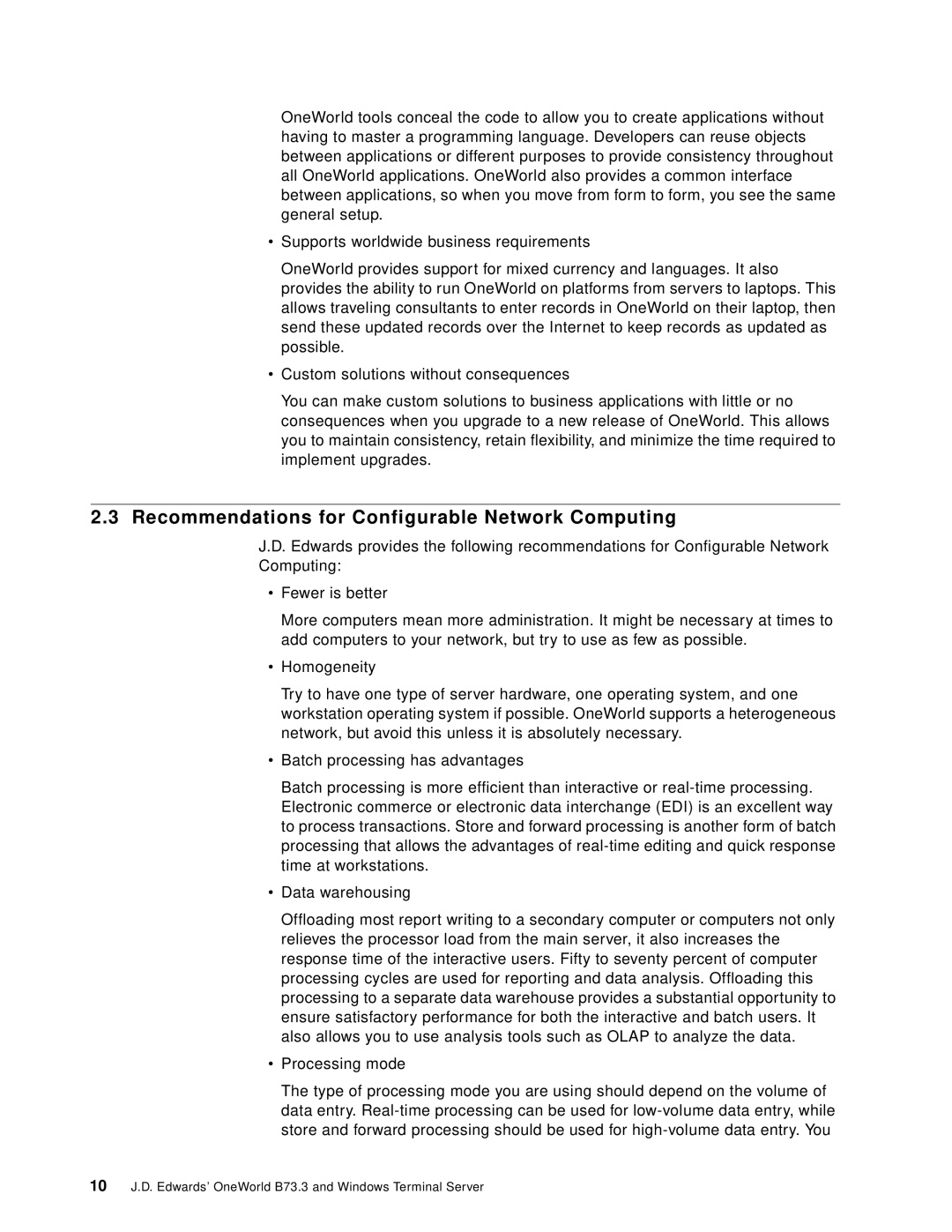OneWorld tools conceal the code to allow you to create applications without having to master a programming language. Developers can reuse objects between applications or different purposes to provide consistency throughout all OneWorld applications. OneWorld also provides a common interface between applications, so when you move from form to form, you see the same general setup.
•Supports worldwide business requirements
OneWorld provides support for mixed currency and languages. It also provides the ability to run OneWorld on platforms from servers to laptops. This allows traveling consultants to enter records in OneWorld on their laptop, then send these updated records over the Internet to keep records as updated as possible.
•Custom solutions without consequences
You can make custom solutions to business applications with little or no consequences when you upgrade to a new release of OneWorld. This allows you to maintain consistency, retain flexibility, and minimize the time required to implement upgrades.
2.3Recommendations for Configurable Network Computing
J.D. Edwards provides the following recommendations for Configurable Network Computing:
•Fewer is better
More computers mean more administration. It might be necessary at times to add computers to your network, but try to use as few as possible.
•Homogeneity
Try to have one type of server hardware, one operating system, and one workstation operating system if possible. OneWorld supports a heterogeneous network, but avoid this unless it is absolutely necessary.
•Batch processing has advantages
Batch processing is more efficient than interactive or
•Data warehousing
Offloading most report writing to a secondary computer or computers not only relieves the processor load from the main server, it also increases the response time of the interactive users. Fifty to seventy percent of computer processing cycles are used for reporting and data analysis. Offloading this processing to a separate data warehouse provides a substantial opportunity to ensure satisfactory performance for both the interactive and batch users. It also allows you to use analysis tools such as OLAP to analyze the data.
•Processing mode
The type of processing mode you are using should depend on the volume of data entry.
10J.D. Edwards’ OneWorld B73.3 and Windows Terminal Server
